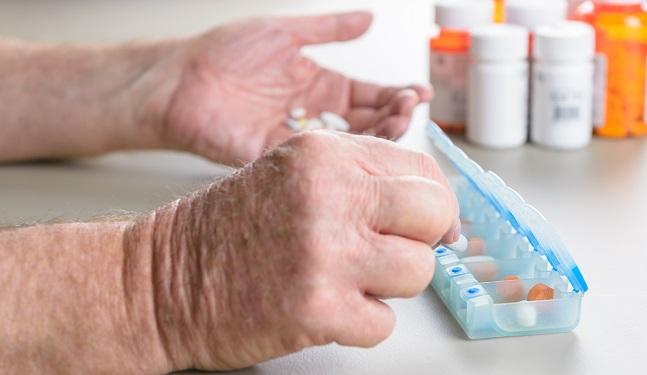‘Forgotten’ Patients With Mechanical Heart Valves Undergoing PCI Pose Clinical Conundrum
Very little evidence exists to guide antiplatelet and antithrombotic therapy in this largely ignored group, experts say.

Ongoing debates about the most appropriate way to treat patients who have an indication for oral anticoagulation and need to undergo PCI have largely focused on those with A-fib, leaving the smaller—but trickier—group of patients with mechanical heart valves out of the discussion.
Patients with mechanical valves have greater thromboembolic risk and a stronger requirement for oral anticoagulation, but evidence regarding how to manage antiplatelet and antithrombotic therapy after PCI in this subset is lacking, according to a new viewpoint by Cian McCarthy, MBBCh (Massachusetts General Hospital, Boston), Subodh Verma, MD, PhD (University of Toronto, Canada), and Deepak Bhatt, MD (Brigham and Women’s Hospital, Boston).
Bhatt told TCTMD that with the paper—published online April 26, 2017, ahead of print in JAMA Cardiology—he and his co-authors wanted to raise awareness of this issue at time when the cardiology community is weighing the risks and benefits of triple therapy in the larger population of patients with indications for both oral anticoagulation and dual antiplatelet therapy.
Patients with mechanical valves are particularly worrisome, Bhatt pointed out, because valve thrombosis can be catastrophic.
“We really want to make sure they’re protected in terms of anticoagulation for their valve,” he said, “but if they get a stent we want to be careful to not put on so much additional antithrombotic therapy that it might provoke a bleed, in which case they may come off all their antithrombotics and then be subject to really disastrous thrombotic and ischemic complications.”
Bhatt estimated that less than 1% of all patients who receive PCI have mechanical heart valves, but added that “in a busy cardiology practice those sorts of patients come up and there really aren’t good data to guide what to do.” He said that the uncertainty has resulted in a great deal of variation in how these patients are treated, even within centers.
Three trials have evaluated the use of triple therapy in patients on oral anticoagulation who were undergoing PCI, but few participants had mechanical valves. They made up less than 10% of the trial populations in WOEST and ISAR-TRIPLE, and were excluded from PIONEER AF-PCI.
Dedicated randomized trials are needed to work out the best way to treat these patients, but researchers have become somewhat gun-shy following the results of the phase II RE-ALIGN trial. That study evaluated use of dabigatran (Pradaxa; Boehringer Ingelheim) in patients with mechanical valves, but it was prematurely halted because of increased risks of both thromboembolic events and bleeding. All non-vitamin K antagonist oral anticoagulants (NOACs) have been contraindicated in this patient subset ever since.
The hesitance to do further trials “is understandable after a negative trial, but unfortunate because it still leaves us in a situation of [not really knowing] if there’s a role for other NOACs in mechanical heart valves,” Bhatt said.
He noted that there are two ongoing NOAC studies in patients with mechanical heart valves—CATHAR and RAMV. If they at least demonstrate safety, he said, it might give the research community the push needed to perform additional, more definitive trials.
In the absence of conclusive data, Bhatt and his co-authors recommend a “reasonable” approach to managing antithrombotic and antiplatelet therapy in patients with mechanical heart valves undergoing PCI:
- Give a therapeutic level of warfarin to protect against valve thrombosis
- Use aspirin during the procedure, which would preferentially include the use of second-generation DES because of the lower risk of stent thrombosis, and not after discharge
- Prescribe a single antiplatelet, likely generic clopidogrel, at discharge
- While maintaining therapeutic anticoagulation indefinitely, discontinue clopidogrel at 6 months after elective PCI and at 12 months in patients with ACS
- During periods of combination therapy, use a proton pump inhibitor to minimize risk of GI hemorrhage
Bhatt said this approach, which is relatively inexpensive, is likely the safest way to minimize bleeding as well as the combination of valve-related thrombotic complications and stent thrombosis until more definitive evidence is available.
Todd Neale is the Associate News Editor for TCTMD and a Senior Medical Journalist. He got his start in journalism at …
Read Full BioSources
McCarthy CP, Verma S, Bhatt DL. The management of antiplatelet and antithrombotic regimens in patients with mechanical valves undergoing percutaneous coronary intervention: a forgotten cohort? JAMA Cardiol. 2017;Epub ahead of print.
Disclosures
- Bhatt reports being on the advisory boards of Cardax, Elsevier Practice Update Cardiology, Medscape Cardiology, and Regado Biosciences; receiving honoraria from multiple publications and steering committees; receiving research funding from Amarin, Amgen, AstraZeneca, Bristol-Myers Squibb, Eisai, Ethicon, Forest Laboratories, Ischemix, Eli Lilly, Medtronic, Pfizer, Roche, Sanofi Aventis, The Medicines Company; receiving royalties from Elsevier (editor, Cardiovascular Intervention: A Companion to Braunwald’s Heart Disease); serving as a site coinvestigator for Biotronik, Boston Scientific, and St Jude Medical; serving as a trustee for the American College of Cardiology; and conducting unfunded research for FlowCo, PLx Pharma, and Takeda.
- McCarthy and Verma report no relevant conflicts of interest.


Comments